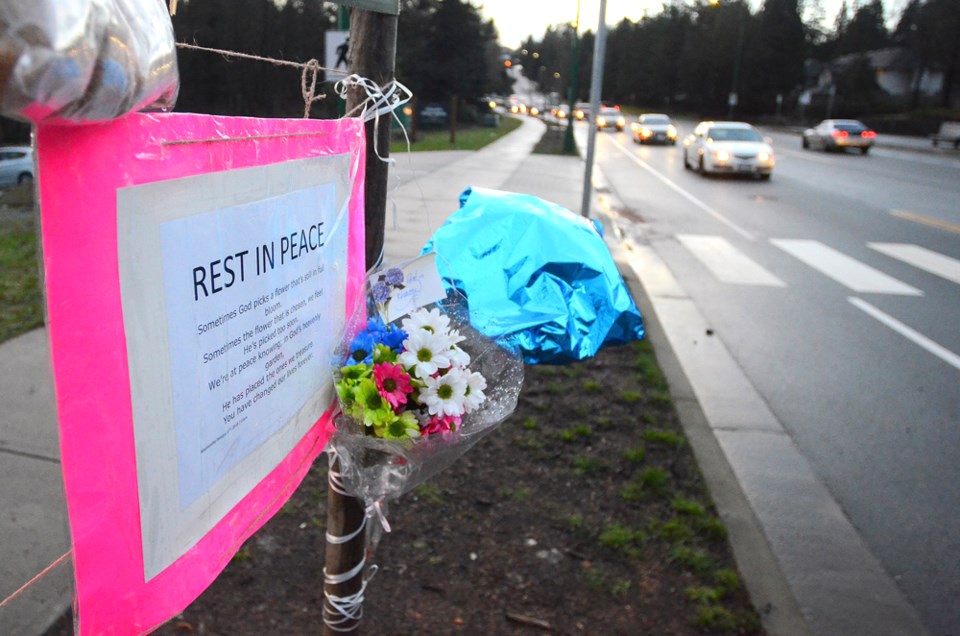The City of Burnaby is working on a policy to deal with memorials that spring up in the wake of tragedies, such as the fatal crash that killed two teens and rocked the Lower Mainland's Ethiopian community or the fatal stabbing of Burnaby RCMP Const. Shaelyn Yang.
Flowers, photos, cards, notes, candles, stuffed animals and other memorabilia are often placed near the scene of the tragedy by family, loved ones and community members.
The city recognizes these impromptu collections are "a shared expression of their loss," according to a report going to the public safety committee Wednesday, but the content and placement of the memorials can also create "safety, operational or maintenance concerns for public space and infrastructure."
And sometimes the nature or reminder of the incident can also "cause upset and create concern within the broader community," according to the report.
City staff are now proposing a new policy to deal with concerns and complaints about the so-called "community initiated memorials."
The proposed policy, which would apply to all city-owned, -leased or -operated property, infrastructure and facilities, sets out a framework for considering whether a memorial should be removed.
Memorials would be considered for removal if they are unsafe, abandoned or derelict, obstruct public space, violate personal information or privacy, are incompatible with adjacent uses and infringe on use of private property, according to the proposed policy.
But affected parties wouldn't be left in the dark, according to the report.
"Family members or other identified parties associated with the establishment of the memorial will be notified of a decision to remove a memorial whenever possible," states the report. "They will be permitted to remove memorial artifacts themselves or elect to have city staff do so."
If, after "reasonable efforts," the city is unable to contact family or others associated with the memorial, staff will remove the items and store them in a secure location for 30 days, after which they will be disposed of.
The report says the proposed policy integrates trauma-informed processes to deal with surviving families, the broader community and staff who have to manage the memorials as required.
"Staff with training and experience with trauma-informed practice will act as primary contact with the family or other identified parties associated with the establishment of the memorial whenever possible," states the report.
Under the proposed policy, staff could provide families with information about the policy; direct them to grief supports, and suggest alternative ways to memorialize their loved one through established city programs.
If approved by the public safety committee Wednesday, the policy will go before mayor and council next month for final approval.
Follow Cornelia Naylor on X/Twitter @CorNaylor
Email [email protected]



